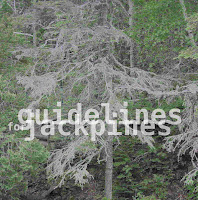After reading through almost all of In Search of Lost Time, I get to the crux of the novel: The narrator describes how certain objects or situations in the present bring back memories, and that this moment when two times coexist, when two part of himself are simultaneously realized, makes him happy and is somehow really meaningful. Whoop de doo. You could hear that in any parlor hypnotists pitch.
There's a lot of really good prose, really interesting ideas in the novel, but I find its self-stated raison d'etre falls rather flat. Which is interesting, because it is this that makes him regain his belief in the value of literature, which he had lost after reading the "Goncourt Journals," a jab at realist lit.
My purpose in reading these classic novels is to measure myself against things which I suppose likely to represent the highest work of humanity in the arts. The final part of my coming of age, my bildungsroman so to speak, has been the realization that humans are not so wise or capable as I had thought, that things are wrong in ways far less idealogical than I used to suppose. As the adult world becomes accessible to me, I realize that much loses its charm and mystery, its capacity to hold the ideals that governed the first part of my coming of age. Much more is lost than I had supposed possible by the realization that it does not lie outside the scope of one's own power, one's own soul. I don't know how to say it, but there is a scope, a range one feels inside oneself, and what is truly wonderful must lie beyond, or at the highest ranges which lie mainly in the half-percieved.
Of course I do not say that these great classic works have dissapointed me. I do not say that they are not beyond me. I do not say, when I walk into the art museum, "I could have painted a better cow than that." There is a complexity in Proust I cannot replicate, nor understand. Still, I do not find what I am looking for.
A few years ago, I began to learn ways of seeing which were essentially negative. Ways of hating and despising the world I percieved, or simply of creating a feeling for its "folly." Ways of distilling a wave a sorrow from almost any event or object. As I was in this period, I consoled myself with the belief that there was a corresponding way of seeing which transformed all into beauty, joy, and distillations of love. I believed that if I had one way in the scope of myself, perhaps the other existed also in me. So that is what I am hoping to find. Tolstoy did help a little (especially the peasant prisoner of war, for instance), and passages in Proust as well. But I think it cannot be a matter of memories revisited, of overlapping time, of lost time regained. These are merely ways of knowing some true "I."


0 Comments:
Post a Comment
<< Home